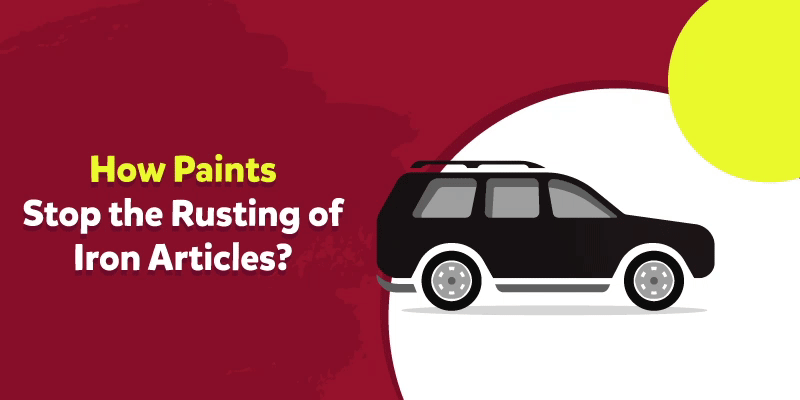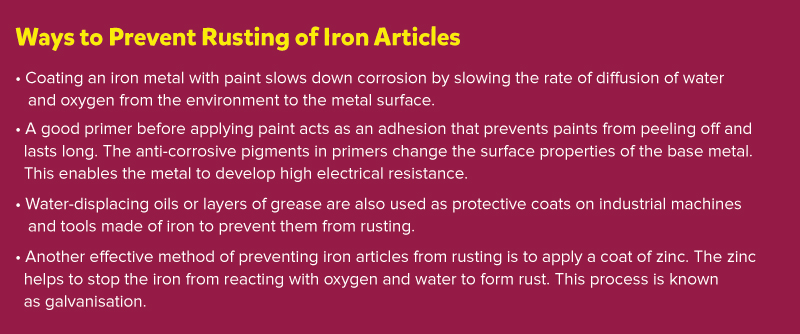
Have you ever come across a very old car? What about old iron nails or keys? Maybe you have seen an abandoned bicycle lying on the roadside. You might have noticed how these unused things have discoloured over the years and turned into a reddish-brown colour. They might have even flaked in some parts. Do you know why?
The reddish-brown colour you see on these materials is nothing but rust. When metal objects corrode, they are in danger of getting ruined by rust. Now, why do only metal objects corrode and not plastic or paper? Let’s understand the basics of corrosion.
Corrosion is a natural phenomenon that slowly eats away metals. Metals corrode when attacked by air, water, moisture or chemicals present in the atmosphere. It is a big concern as it can cost a lot! For instance, corrosion can destroy an entire bridge, collapse a building, break oil pipes, leak chemical plants and much more.
Corrosion of metal is a slow process that takes place over a long period. The iconic bluish-green Statue of Liberty on the Liberty island of the New York Harbor, USA, is a great example of corrosion.

One of the most common kinds of corrosion results from electrochemical reactions in ferrous metals like iron and its alloys such as steel. The scientific name for the product that results due to corrosion in iron is iron oxide (Fe2O3). Rust forms on iron when it reacts with oxygen in the presence of water or moisture in the air.
Not necessarily. Sometimes, certain types of rusting appear green! When iron reacts with chloride in an underwater environment, green rust appears. Look for green rust in any underwater pillars, an old bathtub or under the sink!

Watch this video to understand corrosion of metals.
Unless metals are properly cared for, they would be of no use to anyone. To ensure these metals last long, they need to be protected from corrosion and rusting. One of the many ways to do so is to cover them. You must have noticed how the iron gate in your compound or the metal railing in your house is painted. That is because paints can prevent metals from rusting.
The bigger culprits that allow metal corrosion are air (oxygen) and moisture (water) that enable iron to rust. Hence, they need to be prevented from contacting the metal. Paint is a helping factor here. It acts as a barrier between the metal and the corrosion elements and prevents reactions from taking place.

Paints act as a cover that blocks irons and its alloys from reacting with oxygen and water, thus preventing them from rusting
Paint alone can’t prevent metals from rusting. It needs support from a primer. Paints peel off, especially under humid conditions. A primer is a base coat that helps the paint to stick to the metal for a longer time. It also enhances the colour of the paint by providing a uniform base for a smooth, seamless paint application.

Do you have any rusty items around your house? How are you planning to prevent them from rusting? Do tell us in the comments below.
Books are Tanaya Goswami’s first love and cheesecakes come a close second. Talking about movies, music, calligraphy, politics, and Elon Musk will get you listed under the friends’ section of her diary. Ever since moving on from her job as an English lecturer, she spends her time at BYJU’S crafting stories filled with emotion and sprinkled with sarcasm. Outside of work, she’s either learning something new (French, most recently!) or is curled up with a book and a cup of coffee. She firmly believes that discovering what you don’t know is the key to knowledge and is constantly working towards improving herself. Drop in a line at storyweavers@byjus.com if you liked her stories, have something nice to say, or if you have compelling ideas to share!